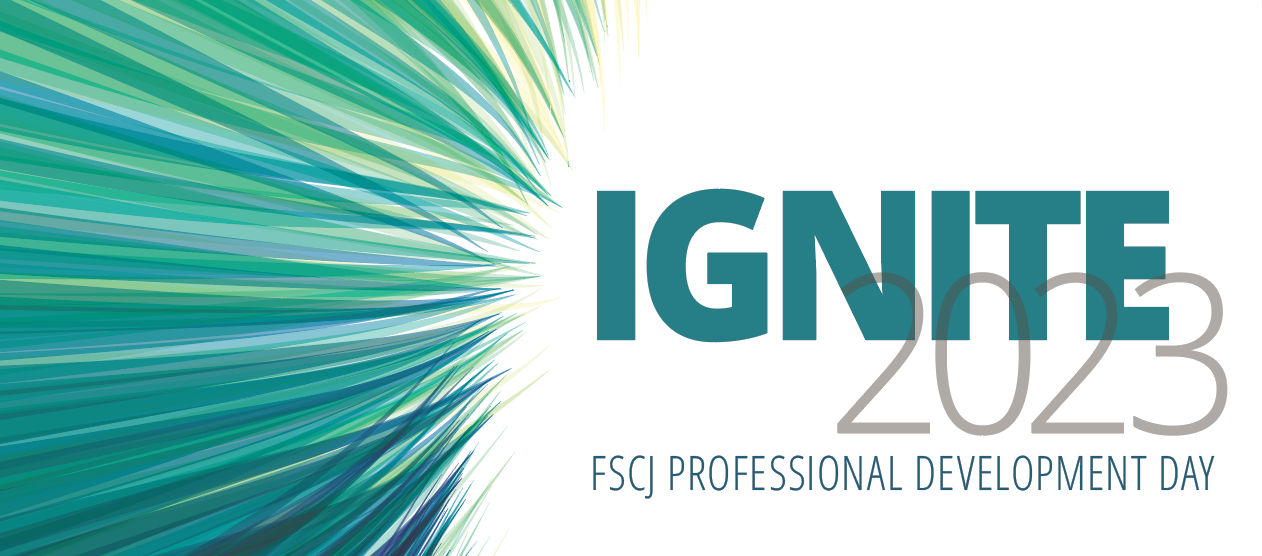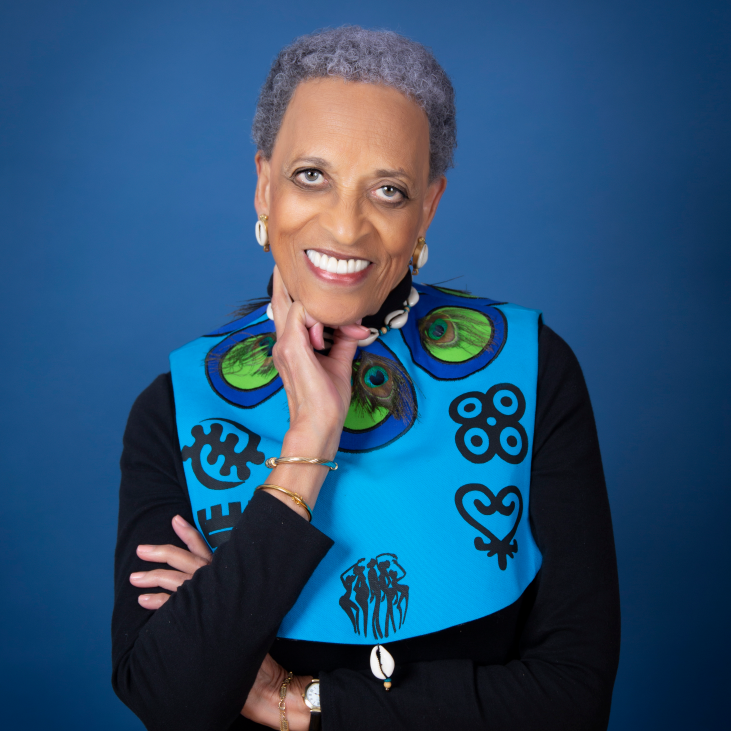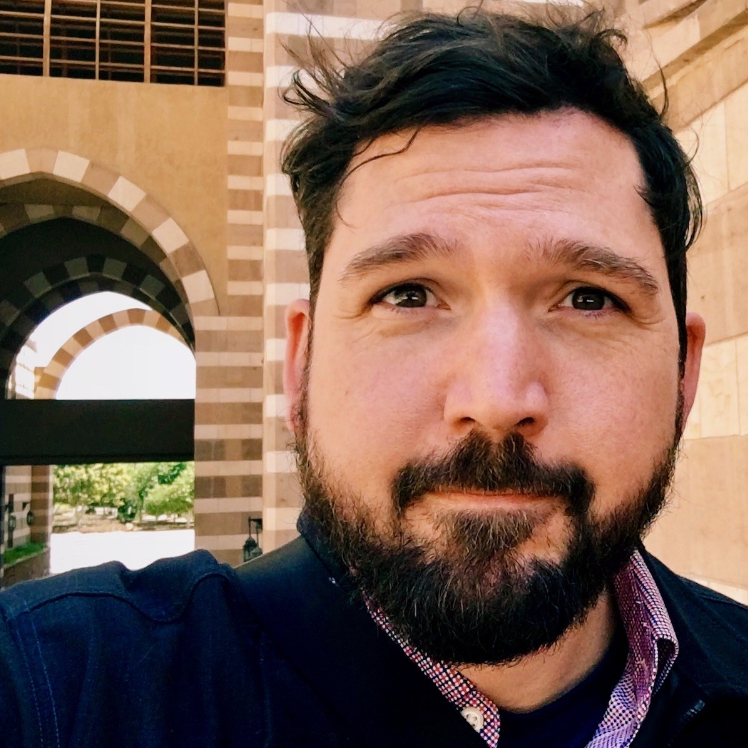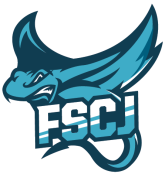Archive:
Professional Development Day 2023

Overview
The 7th annual Professional Development Day: Ignite for 2023 will be held Friday, January 6, 2023, at the Advanced Technology Center. Make plans to attend this day of professional development and growth. Four tracks will focus on Strategic Priorities, Teaching and Learning, Student Support, and Workplace Culture.
The day will feature keynote Dr. Johnnetta Betsch Cole and her acclaimed presentation focusing on issues that affect student enrollment and suggestions for increasing the number of diverse students in a college community.
How to Register
- View the "Program" section below
- Click on the Submenu Items (Example: "Keynote Speaker," "Workshop Session #1, #2," etc.) to find items of interest
- Click the "Register Now" links to enroll in specific events or workshops
Program
-
Agenda
Friday, January 6th, 2023, FSCJ Advanced Technology Center Times Event Location 8:00-8:30 A.M. Breakfast/Departmental Tabling T140/141 8:30-9:50 A.M. Keynote Speaker: Dr. Johnetta Cole T140/141 10:00-10:50 A.M. Workshop Session #1 Assorted Building T Classrooms 11:00-11:50 A.M. Workshop Session #2 Assorted Building T Classrooms 11:50 A.M.-12:40 P.M. Lunch T140/141 1:00-1:50 P.M. Workshop Session #3 Assorted Building T Classrooms 2:00-2:50 P.M. Workshop Session #4 Assorted Building T Classrooms -
Keynote Speaker
 Dr. Johnnetta Betsch Cole is an anthropologist, educator, and consultant on issues of diversity, equity, accessibility, and inclusion. She formerly served as the president of Spelman and Bennett Colleges, the only two historically Black colleges for women in the United States. And from 2009-2017, she was the Director of the Smithsonian National Museum of African Art. Dr. Cole has served on a number of corporate boards, she is a community service activist, and she has received 70 honorary degrees from colleges and universities.
Dr. Johnnetta Betsch Cole is an anthropologist, educator, and consultant on issues of diversity, equity, accessibility, and inclusion. She formerly served as the president of Spelman and Bennett Colleges, the only two historically Black colleges for women in the United States. And from 2009-2017, she was the Director of the Smithsonian National Museum of African Art. Dr. Cole has served on a number of corporate boards, she is a community service activist, and she has received 70 honorary degrees from colleges and universities.Meeting the Challenge of Building a More Sustainable and Diverse Higher Education Student Community
Dr. Cole’s presentation will focus on issues that affect student enrollment and will include suggestions for increasing the number of diverse students in a college community. Following her keynote, and a Q and A, participants will move into small group discussions before Dr. Cole does a “Wrap Up” of the day’s program.
Room T140/141
PD 1814
8:30–9:50 A.M.
Register Now -
Workshop Session #1, 10:00-10:50 A.M.
Beating the First Day Blues
Jeffery Knapp
We've recently learned that students are feeling less connected to their professors here at FSCJ. Through exasperation, research, and creativity, I've transformed the first day of class into an exciting opportunity to reach students, pull them in, and lay the groundwork for community building. Ask students about "syllabus day." They'll roll their eyes or give you blank expressions. Many of us, me included, have spent our careers beginning a new class the same way we were taught. Describe the course, read the syllabus, explain policies, have some cute exercise meant to loosen students up. But this approach does not work. Syllabus day is too often a wasted day. In my presentation, I will offer both anecdotal accounts and research that demonstrates this approach alienates students. I will share my experience with a different kind of first day of class, one that connects our students to us and to each other.
ATC, Room T210
10:00-10:50 A.M.
PD 1815
Register NowDesigning a Culturally Responsive Curriculum
Dianne Mcauliffe and Marilyn Painter
During this workshop, the participants will identify the components of a culturally responsive curriculum. The participants will apply this knowledge to modify curriculum by adding course content and resources and designing meaningful assignments and assessments that foster diversity and inclusion.
ATC, Room T140
10:00-*11:50 A.M.
PD 1708
Register Now
*This class runs beyond the 50-minute Workshop Session #1 timeframe.Don’t Lose Your Cool...Tools for De-escalating Angry Customers
Martina Perry, Terence Wright, Carla Jenkins
Interactions with angry customers can be difficult to manage, if you are not prepared. In this workshop, participants will learn how to take control of the situation and respond to the customer effectively, while managing their own emotions. Participants will be able to identify the level of crisis behaviors demonstrated by the customer and select the appropriate tools that they can use to de-escalate the situation.
ATC, Room T219
10:00-10:50 A.M.
PD 1759
Register NowHelping Students Find Money for College
Christy Vint-Griswold
In this presentation you will have the opportunity to view the newly updated Fund Your Future portion of FSCJ's Financial Aid website. We will discuss each of the different funding opportunities for students, and you will leave with the knowledge of how to guide students to this valuable resource that addresses the most common funding needs.
ATC, Room T203A
10:00-10:50 A.M.
PD 1808
Register NowIntentional instructional design to improve student learning outcomes in lab-based courses
Kimberly Fahlgren, Dionne Griffin and Carley Cortopassi
Backward design is an instructional design technique that helps educators keep the achievement of student learning outcomes front and center in the educational process. Assessment of practical skills is part of every healthcare education program. This presentation seeks to instruct educators about the backward design process, provide information on best practices, describe instructional activities and demonstrate assessment tools used in lab practical courses to promote achievement of student learning outcomes.
ATC, Room T205
10:00-10:50 A.M.
PD 1827
Register NowThe UDL Experiment
Kelly Harbert and Lori Cimino
How about a Universal Design Learning experiment? UDL provides useful guidelines for developing curricula, selecting materials and creating learning environments that takes into account the wide variability of learners in higher ed environments. This workshop will provide participants with an overview of the three UDL guidelines and leave you with a framework for taking a small step into experimenting with UDL in your classroom
ATC, Room T241
10:00-10:50 A.M.
PD 1816
Register NowWorld Affairs Council: A Great Decision
Andreia Thaxton and Jametoria Burton
This session will share information on the World Affairs Council/ Great Decisions Program Great Decisions is America's largest discussion program on world affairs. The program model involves reading the Great Decisions Briefing Book, watching the documentary film series and meeting in a Discussion Group to discuss the most critical global issues facing America today. Faculty members from FSCJ, UNF and JU all work with high school teams and invite college students to participate in lectures and activities. This session will share the information on the World Affairs/ Great Decisions program, share experiences of members and students, discuss how faculty can get involved and get their students involved in World Affairs/Great Decisions discussion groups and events.
ATC, Room T111
10:00-10:50 A.M.
PD 1786
Register Now -
Workshop Session #2, 11:00-11:50 A.M.
Accommodations using Universal Design. How do we accommodate without altering?
Lori Cimino and Kelly Harbert
What about accommodations? What has to be done? What are the responsibilities? We would like to start a discussion with faculty and staff regarding working with students approved for accommodations. Using the concept of Universal Design, we want to increase understanding that it’s not difficult to accommodate students without fundamentally altering instruction or services. Bring some examples of accommodations. We will use case studies to dive into some common and more complex accommodations. Student Support Services is here for faculty and staff as well as students, the hope is to increase information and communication to form a strong partnership.
ATC, Room T241
11:00-11:50 A.M.
PD 1826
Register NowCoping with Change
Karen Rech
If you have completed the COV/FCOV version of this course, you will not be eligible to receive One Percent credit for this course. Change in the workplace is inevitable. However, a changing environment can often produce stress or anxiety. Change and the resulting stress drive from both positive and negative events. This workshop explores the various stages of change and steps employees can take to achieve acceptance.
ATC, Room T219
11:00-11:50 A.M.
PD 5149
Register NowIntroduction to Interest-Based Problem-Solving
Steve Beard
Learn more about this problem-solving process conducted in a principled way that creates effective solutions through consensus decision-making while improving the relationships among participants.
ATC, Room T203A
11:00-11:50 A.M.
PD 1721
Register NowThe Quality Enhancement Plan: What You Need to Know
Deb Fontaine
This session will describe the framework for our Quality Enhancement Plan to improve student success in online courses. The two-pronged approach, from the student and faculty perspectives, will be outlined and attendees will have an opportunity to provide feedback.
ATC, Room T208
11:00-11:50 A.M.
PD 1809
Register NowStudent Learning for Student Success
Andreia Thaxton and Jametoria Burton
Participants will gain an understanding of Academic Service Learning and Community Engagement that highlights competence in diversity, equity, inclusion and belonging. Session includes tips and tools to successfully integrate service-learning in your courses or programs. Another emphasis includes collaboration with international education opportunities through special partnership with the World Affairs Council.
ATC, Room T111
11:00-11:50 A.M.
PD 3073
Register NowUsing the Research Skills Mini Course as a Teaching Resource
Julie Pactor
Do your students struggle to find reliable resources, formulate effective research questions, or correctly cite their sources? The Research Skills Mini Course (RSMC) can help! The RSMC is a series of mix-and-match Canvas modules designed to address the most common faculty requests for library support. Attendees will get an in-depth look at the modules and learn how to successfully incorporate desired module(s) into their courses.
ATC, Room T210
11:00-11:50 A.M.
PD 1730
Register Now -
Workshop Session #3, 1:00-1:50 P.M.
How to Be A Mentor Without Being Jerk
Linda Herlocker
As we advance in our profession, often we are asked to serve as mentors. Sometimes the mentees approach for themselves; other times we are tapped and paired up as part of a more formal professional development program. The problem is that typically, there is little or no training on how to be a mentor. Somehow it is assumed that the act of simply surviving and growing older in this work provides us with “secret knowledge” and the key to successful mentorship. But if you have ever had the misfortune to be paired with a bad mentor, then you know that the ability to mentor well is not something we are born with, or a skill gained by osmosis. Done clumsily, it can be a huge waste of time; done poorly, it may even be a professional embarrassment. This session will provide you with clear direction about what good mentoring is, what it isn’t, what it takes to be a good mentor and how to do it well.
ATC, Room T203A
1:00-1:50 P.M.
PD 1792
Register NowIntroduction to Interest-Based Problem-Solving
Steven Gunter and Kerry Roth
Learn more about this problem-solving process conducted in a principled way that creates effective solutions through consensus decision-making while improving the relationships among participants.
ATC, Room T210
1:00-1:50 P.M.
PD 1721
Register NowMore than an Act: Working with Students with Disabilities
Anthony Goodman
This presentation will delve into the topic of people with disabilities with an emphasis on students with disabilities. We will attempt to bring awareness to the underlying perceptions that people have whether they are negative or ‘overly’ positive about the students who have differences. Our staff must know that students with disabilities are students first; those students need and deserve accommodations, not sympathy-laden pity. In all situations, those with disabilities just need the opportunity to excel, and ADA will discuss everyone's role in their success.
ATC, Room T203
1:00-1:50 P.M.
PD 1766
Register NowPedagogies of Care: The Human Work of Course Design
Jesse Stomel
 Jesse Stommel is currently a faculty member in the Writing Program at the University of Denver. He is also co-founder of Hybrid Pedagogy: the journal of critical digital pedagogy and Digital Pedagogy Lab (2015-2021). He has a PhD from the University of Colorado Boulder. He is co-author of An Urgency of Teachers: The Work of Critical Digital Pedagogy. Jesse is a documentary filmmaker and teaches courses about pedagogy, film, digital studies, and composition. Jesse experiments relentlessly with learning interfaces, both digital and analog, and his research focuses on higher education pedagogy, critical digital pedagogy, and assessment. Jesse has 7 new publications since 2020, including: 2 pieces in Academe: "Care is a Practice; Care is Pedagogical" and "The Human Work of Higher Education Pedagogy." And a new edited collection, Critical Digital Pedagogy: A Collection. He was recently interviewed for stories in The New Yorker, The Washington Post, The Chronicle of Higher Education, Chemical and Engineering News, and more. In the last year, he's given over two dozen keynotes, including at The Teaching Professor Conference, at ASU, at the "Against Surveillance Teach-in," and more.
Jesse Stommel is currently a faculty member in the Writing Program at the University of Denver. He is also co-founder of Hybrid Pedagogy: the journal of critical digital pedagogy and Digital Pedagogy Lab (2015-2021). He has a PhD from the University of Colorado Boulder. He is co-author of An Urgency of Teachers: The Work of Critical Digital Pedagogy. Jesse is a documentary filmmaker and teaches courses about pedagogy, film, digital studies, and composition. Jesse experiments relentlessly with learning interfaces, both digital and analog, and his research focuses on higher education pedagogy, critical digital pedagogy, and assessment. Jesse has 7 new publications since 2020, including: 2 pieces in Academe: "Care is a Practice; Care is Pedagogical" and "The Human Work of Higher Education Pedagogy." And a new edited collection, Critical Digital Pedagogy: A Collection. He was recently interviewed for stories in The New Yorker, The Washington Post, The Chronicle of Higher Education, Chemical and Engineering News, and more. In the last year, he's given over two dozen keynotes, including at The Teaching Professor Conference, at ASU, at the "Against Surveillance Teach-in," and more.
Educational institutions are spaces for learning, but more specifically, they are spaces for social learning. There is no one-size-fits-all set of best practices for building a learning community, whether on-ground or online. Right now, we should begin our efforts toward building community by designing for the students who need that community most, the ones most likely to have been feeling isolated even before the pandemic: disabled students, chronically ill students, students of color, queer students, and students facing housing and food-insecurity. Our ability to develop community will depend on our willingness to acknowledge trauma that members of our community have and will experience. Bell Hooks writes, “As a classroom community, our capacity to generate excitement is deeply affected by our interest in one another, in hearing one another’s voices, in recognizing one another’s presence.” So, our ability to develop community will also depend on our willingness to continue feeling joy, having epiphanies, asking hard questions, and sharing our curiosity with one another.
ATC, Room T140
1:00-1:50 P.M.
PD 1829
Register NowPower of The Positive: Cultivating Optimism
Karen Rech
This session explores ways to cultivate an authentic optimism that enhances resiliency and helps individuals and groups navigate change. Participants will gain a better understanding of what optimism is and is not and, ultimately, how to put it to work in their life to influence co-workers and others to become more optimistic. The overall goal is to enhance self-assurance through the power of optimism and learn specific techniques for maintaining the awareness of the power of a positive approach to work and life.
ATC, Room T219
1:00-1:50 P.M.
PD 1724
Register NowTRiO: What is it? (The differentiation between TRiO Support Services)
Myisha DeNose and Bradford Hall
You may have asked yourself, what is TRiO? TRiO is a federal outreach program that targets low-income, underrepresented, and underserved populations of students. The creation of TRiO programs began with the Educational Opportunity Act of 1964 and the War on Poverty statute, which created the federal Upward Bound program. By 1968 the original TRiO programs, Upward Bound, Talent Search, and Special Services, were established. When assisting a student, do you know which TRiO program to refer the student too? Were you aware that we have four different TRiO programs at the college? The programs are Educational Opportunity Center, Talent Search, Student Support Services, and Veterans Upward Bound. We will do a deep dive into the services each program offers and how you can be a bridge to connect students to our services.
ATC, Room T111
1:00-1:50 P.M.
PD 1825
Register Now -
Workshop Session #4, 2:00-2:50 P.M.
Applying Pedagogies of Care: The Human Work of Course Design
Jesse Stomel
 Jesse Stommel is currently a faculty member in the Writing Program at the University of Denver. He is also co-founder of Hybrid Pedagogy: the journal of critical digital pedagogy and Digital Pedagogy Lab (2015-2021). He has a PhD from the University of Colorado Boulder. He is co-author of An Urgency of Teachers: The Work of Critical Digital Pedagogy. Jesse is a documentary filmmaker and teaches courses about pedagogy, film, digital studies, and composition. Jesse experiments relentlessly with learning interfaces, both digital and analog, and his research focuses on higher education pedagogy, critical digital pedagogy, and assessment. Jesse has 7 new publications since 2020, including: 2 pieces in Academe: "Care is a Practice; Care is Pedagogical" and "The Human Work of Higher Education Pedagogy." And a new edited collection, Critical Digital Pedagogy: A Collection. He was recently interviewed for stories in The New Yorker, The Washington Post, The Chronicle of Higher Education, Chemical and Engineering News, and more. In the last year, he's given over two dozen keynotes, including at The Teaching Professor Conference, at ASU, at the "Against Surveillance Teach-in," and more.
Jesse Stommel is currently a faculty member in the Writing Program at the University of Denver. He is also co-founder of Hybrid Pedagogy: the journal of critical digital pedagogy and Digital Pedagogy Lab (2015-2021). He has a PhD from the University of Colorado Boulder. He is co-author of An Urgency of Teachers: The Work of Critical Digital Pedagogy. Jesse is a documentary filmmaker and teaches courses about pedagogy, film, digital studies, and composition. Jesse experiments relentlessly with learning interfaces, both digital and analog, and his research focuses on higher education pedagogy, critical digital pedagogy, and assessment. Jesse has 7 new publications since 2020, including: 2 pieces in Academe: "Care is a Practice; Care is Pedagogical" and "The Human Work of Higher Education Pedagogy." And a new edited collection, Critical Digital Pedagogy: A Collection. He was recently interviewed for stories in The New Yorker, The Washington Post, The Chronicle of Higher Education, Chemical and Engineering News, and more. In the last year, he's given over two dozen keynotes, including at The Teaching Professor Conference, at ASU, at the "Against Surveillance Teach-in," and more.
There has been much talk over the last two years about maintaining “continuity” of instruction and assessment, but it's even more important for us to talk about how we maintain the communities at the heart of our educational institutions. Sara Goldrick-Rab and I write, “We need to design our pedagogical approaches for the students we have, not the students we wish we had. This requires approaches that are responsive, inclusive, adaptive, challenging, and compassionate. And it requires institutions to find more creative ways to support teachers and prepare them for the work of teaching. This is not a theoretical exercise — it is a practical one.”
Many of the students we work with don’t know where they will find their next meal. The most marginalized students at our institutions are finding themselves and their work increasingly policed — by faculty members, by administrative policies, by ed-tech “solutions,” and by the actual police. Meanwhile, the majority of faculty members in higher education are precariously employed.
We have to design for the least privileged, most marginalized students, the ones more likely to have felt isolated even before the pandemic: disabled students, chronically-ill students, BIPOC students, queer students, and those facing basic needs insecurity. We need to design assessments, write syllabi, develop policies, rethink our approach to grades, and imagine new ways forward, for these students, the ones already struggling, already facing exclusion. We have to start by finding out who our students are, what they need to be successful, and how our institutional mission does (and sometimes doesn’t) align with our practices.
ATC, Room T201
2:00-*3:50 P.M.
PD 1830
Register Now
*This class runs beyond the 50-minute Workshop Session #4 timeframe.Dealing with Difficult People
Karen Rech
We all work with a variety of personalities in the workplace. Coworkers or clients who are difficult or impossible to work with can affect your job and productivity. Effectively coping with difficult people is an invaluable skill. This workshop addresses how focusing on the issue, not on the anger or strong emotions conveyed by others, can lead to a more productive work environment. Clear and open communication, as well as customer satisfaction, can be increased through active listening and being more assertive in difficult situations.
ATC, Room T219
2:00-2:50 P.M.
PD 4042
Register NowThe Shared Reality in the Classroom
Brian Wiley
As we step into the classroom each semester, we have so many different goals. Keeping students motivated, thinking critically, and successfully achieving academic goals rarely happens by accident. Understanding the motivations that underlie shared reality can help you make your classroom experience more conducive to generating these outcomes. Come and learn about shared reality and how different approaches to the classroom can help your students.
ATC, Room T241
2:00-2:50 P.M.
PD 1733
Register NowThe Six Sigma Leader That You Are--And Want to Be
Kip Strasma
Effective leaders see the world not as it is but as it could be; they see processes functioning more effectively compared to current as-is states. This is the lens of Six Sigma, its culture, purpose, and methodology. Through Six Sigma leaders sharpen their focus on how the right people, metrics, and structures can transform educational processes that impact students and their learning. This session, designed as a seminar or conversation, frames these ideas and focuses on the tools needed to make it come to light--including project identification, facilitation, and management.
ATC, Room T203A
2:00-2:50 P.M.
PD 1810
Register NowWant to enhance your recruitment outcomes? Top three tips for developing a collegewide community of practice.
Jacquelyn Thompson and Megan Dross
Higher education recruitment teams are usually small and stretched to their limits. Others at the institution often do recruitment activities outside the core, well-trained team, creating redundancies and knowledge gaps. Exploring the results of an Action Research study, participants will learn how to provide an outlet for coordination and growth through Virtual Communities of Practice.
ATC, Room T111
2:00-2:50 P.M.
PD 1828
Register NowWhat’s New in Canvas
Brandi Bleak, Thomas Lewis, and Jody Morgan
Canvas is always changing, so it might be more useful to ask: what isn’t new in Canvas!? This workshop will provide a high-level overview of projected changes to Canvas over the next six months. Additionally, we will cover a few ways that you can be an active voice in the development of new features by using the Canvas Community.
ATC, Room T210
2:00-2:50 P.M.
PD 1570
Register Now
SACSCOC
Florida State College at Jacksonville is accredited by the Southern Association of Colleges and Schools Commission on Colleges (SACSCOC) to award the baccalaureate and associate degree. Contact the Commission on Colleges at 1866 Southern Lane, Decatur, Georgia 30033-4097, or call (404) 679-4500 for questions about the accreditation of Florida State College at Jacksonville. The Commission is to be contacted only if there is evidence that appears to support an institution's significant non-compliance with a requirement or standard.
◈ 501 West State Street, Jacksonville, FL 32202 - © FSCJ - All Rights Reserved
